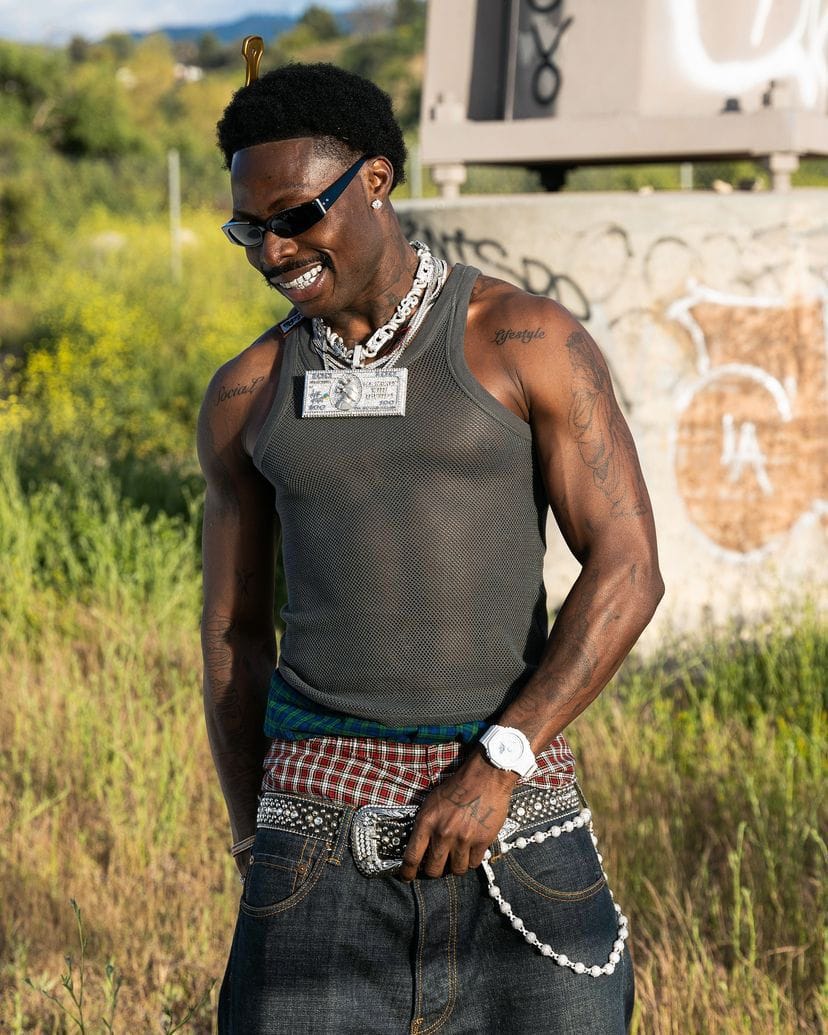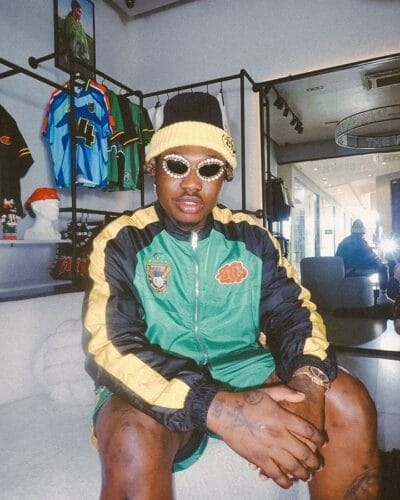
From the Trenches to the Top Charts: How Afrobeats Street Pop is Taking Over
Afrobeats is bigger than ever, but one sound is shaking things up in the most unfiltered, energetic way – Street Pop. Born from the hustle and heartbeat of Nigeria’s streets, this raw and infectious subgenre has gone from local corners to global charts, bringing the slang, struggles, and spirit of the streets straight to the mainstream.
From the early days of Erigga to Olamide paving the way to the rise of stars like Asake, Zlatan, Portable, Bella Shmurda, and Seyi Vibez, Street Pop isn’t just music – it’s a movement, a movement burning new rising stars at every iconic moment. The beats hit hard, the lyrics are real, and the energy is undeniable. What was once a sound for the streets is now shaping Afrobeats as a whole, influencing not just music but fashion, culture, and lifestyle.
So how did this unfiltered, street-born wave become the driving force of modern Afrobeats? Read on as we dive into the rise of Street Pop and how it’s taking over the world.
The Birth of Afrobeats Street Pop: The Sound, The Struggle, The Spirit
Afrobeats Street Pop isn’t just music – it’s the heartbeat of the streets, a raw and unfiltered reflection of life in Nigeria’s most vibrant and chaotic corners. From the bustling, never-sleeping markets of Lagos to the rugged backstreets of Port Harcourt, this sound carries the energy, struggles, and triumphs of the people. It’s loud, it’s rebellious, and unapologetically real.
This movement didn’t start in polished studios or boardroom meetings – it was born in street corners, in freestyle sessions with friends, in makeshift studios where beats were crafted from pure hustle. Street pop artists don’t just make music; they document life as it is. Olamide, the undisputed godfather of street pop, paved the way with his blend of indigenous Yoruba rap and streetwise storytelling. Naira Marley turned the streets into a movement with his irreverent, no-rules attitude. Zlatan gave us anthems laced with slang and dance moves that became cultural phenomena. Then came Portable, the wild, unpredictable force who reminded everyone that street pop is about raw, unfiltered energy.
At its core, street pop is for the people who hustle daily, who find joy in small victories, and who turn struggles into stories and stories into anthems. It’s a sound that refuses to be ignored because it speaks the language of the masses – one bass-heavy, slang-filled, electrifying track at a time.
Rise of Afrobeats Street Pop: The Architects of the Movement
Afrobeats Street Pop isn’t just a genre – it’s a movement powered by raw energy, real-life stories, and the voices of the streets. From the pioneers who paved the way to the new wave of hitmakers redefining the sound, these artists have taken street culture from the trenches to the mainstream.
Here’s a look at the key figures shaping the rise of Afrobeats Street Pop:
Olamide: The Godfather of Street Pop’s Mainstream Success

Olamide is undeniably the architect of modern Street Pop. Since his early days with Yahoo Boy No Laptop (YBNL), he has consistently championed raw, street-driven narratives and transformed them into mainstream Afrobeats anthems. His ability to blend indigenous Yoruba rap with commercial appeal has been instrumental in shaping the sound of a generation.
Tracks like Wo!, Science Student, and Bobo weren’t just hits – they were street anthems that solidified his influence and proved that street culture could dominate the biggest stages. Even as his sound has evolved into a more commercial and refined version of Afrobeats, his legacy as the King of Street Pop remains untouchable.
Beyond his personal success, Olamide has been a kingmaker, consistently putting emerging Street Pop (and also mainstream Afrobeats) artists in the spotlight. From nurturing stars like Lil Kesh, Adekunle Gold, Fireboy DML, and Asake (arguably his biggest investment) to co-signing breakout talents like T.I Blaze, Portable, and Bella Shmurda, he has been the bridge between the underground hustle and mainstream success. No matter how far his sound evolves, the streets will always recognize Olamide as their own – one of the greatest to ever do it.
Asake: Redefining Street Pop with Fuji and Amapiano Fusion

Few artists have reshaped the landscape of Street Pop as rapidly and dramatically as Asake. His unique ability to fuse Fuji-inspired vocals, choir-like chants, and the pulsating groove of South African Amapiano has elevated Street Pop from a local sound to a global movement.
His debut album, Mr. Money With The Vibe, was a game-changer, shattering multiple streaming records and proving that Street Pop could thrive on an international level. But Asake didn’t stop there – his sophomore project, Work of Art, shows he wasn’t here to play around. Moreover, his third album, Lungu Boy (completing the trifecta of dominance), further solidified his position as the leading face of modern Street Pop. His projects always capture the gritty, energetic essence of the streets while pushing the sound into a fresh, contemporary space that resonates worldwide.
More impressively, Asake is now standing on his own after recently parting ways with Olamide’s YBNL, the label that helped launch his career. While his foundation was built under Olamide’s mentorship, he is proving that he can navigate the industry on his own terms and continue to elevate street pop on a global scale.
Right now, Asake is the artist making Street Pop cool for international audiences. From headlining major festivals to securing collaborations that bridge Afrobeats with global music scenes, he’s pushing boundaries in a way that no street pop artist has done before. Whether it’s through his melodic yet street-conscious lyrics, his high-energy performances, or his bold fusion of cultures, Asake is the future of street pop – and the future is here.
Zlatan Ibile: The Cultural King of Street Pop, Slang, and Dance Trends

Zlatan Ibile isn’t just a musician – he’s a cultural force in Street Pop. From pioneering the Zanku (Legwork) dance to introducing viral slang that quickly becomes part of everyday conversations, Zlatan’s impact runs deep. His ability to tap into the raw energy of the streets and turn it into chart-topping hits makes him one of the most influential figures in the movement.
With songs like Zanku, Bolanle, and Ale Yi, Zlatan has perfected the art of creating hustler anthems that resonate with the streets while still getting airplay in high-end clubs and international playlists. His music isn’t just about beats and catchy hooks – it’s about storytelling, resilience, and the never-ending hustle. His high-energy delivery and signature ad-libs make every track feel like a rallying cry for those trying to make it against all odds.
Beyond his music, Zlatan has proven to be one of the biggest supporters of emerging artists, much like Olamide, who helped shape the careers of many Street Pop stars. Zlatan frequently collaborates with up-and-coming talents, giving them the platform and exposure they need to break into the industry. His latest song with FOLA, a rising artist, has now shot to the top of the Nigerian charts, proving once again that Zlatan has an ear for talent and isn’t afraid to share his platform.
One of the biggest examples of Zlatan’s impact on emerging artists is BNXN (formerly Buju). At a time when BNXN was still an underground artist, Zlatan jumped on his track Spiritual, helping to introduce him to a wider audience and setting him on the path to stardom. This co-sign played a major role in BNXN’s breakthrough, proving that Zlatan isn’t just about his own success – he genuinely wants to see others win too.
At his core, Zlatan represents the essence of Street Pop – its grit, its rawness, and its unfiltered joy. Whether he’s introducing the next viral dance step, dropping another street anthem, or uplifting young talents, Zlatan continues to bridge the gap between the underground and the mainstream, making sure the streets always have a voice in the larger Afrobeats conversation.
Bella Shmurda: The Conscious Voice of the Streets (Street Pop)

Bella Shmurda isn’t just another street pop artist – he’s a storyteller, a voice for the voiceless, and a symbol of hope for many struggling to make it out of the trenches. While Street Pop is often associated with high-energy party anthems and hustle-driven narratives, Bella brings something deeper, more emotional, and thought-provoking to the genre.
From the moment he broke out with Vision 2020, Bella Shmurda set himself apart with his ability to capture the raw struggles of the streets – the daily grind, the hunger for success, and the pain of a system that often feels rigged against the common man. Songs like Cash App became instant anthems, not just because of their infectious beats but because they spoke to the reality of survival in a tough world. Rush further solidified his place, addressing the pressures of fame, fake friends, and the importance of staying true to oneself. His music is a perfect blend of street wisdom and spiritual reflection, making him one of the most relatable voices in modern Afrobeats.
As Bella Shmurda continues to evolve, he’s also stepping into a new role – not just as an artist but as a leader and mentor. Recently, he signed FOLA to his label, showing that he’s now building his own movement and giving opportunities to the next generation of street pop stars. Much like Olamide and Zlatan, Bella Shmurda is proving that success isn’t just about personal wins – it’s about lifting others up along the way.
Through his music and actions, Bella Shmurda remains the conscious voice of the streets, blending melody with meaning, energy with empathy and always staying true to the roots that made him.
Erigga: The King of South-South (Rap) Street Pop

No conversation about Street Pop and raw storytelling is complete without mentioning Erigga, the lyrical prophet of the streets. Hailing from Warri, Delta State, and proudly carrying the Paperboi moniker, Erigga has built a career on unfiltered, unapologetic street wisdom. His music is not just entertainment – it’s a mirror reflecting the struggles, hustle, and survival instincts of the average Nigerian, especially those from the South-South.
Unlike many Street Pop artists who lean heavily into club bangers, Erigga stays rooted in deep storytelling, using his heavy Pidgin English rap to bring out the realities of street life. Songs like Motivation (a street anthem that became a mantra for hustlers), Glory (featuring Nosa, which blends rap with gospel-like reflection), and Problem No Dey Finish (a brutally honest take on life’s endless struggles) have made him a voice for those who grind daily in the trenches. His lyrics are bold, raw, and sometimes even humorous, yet always laced with deep street wisdom – the kind only someone who has truly lived that life can deliver.
Erigga’s latest album, G.O.A.T (Greatest of All Time), is further proof of his consistency and impact on Street Pop & Nigerian Rap. The project is currently among the top albums in Nigeria, a testament to his dedicated fanbase and the power of his music. It’s not just an album; it’s a collection of street sermons, blending everything from hustler motivation to social commentary, all wrapped in his signature Warri storytelling style.
Beyond his music, Erigga is a cultural force, influencing not just rap but the entire Street Pop movement. His ability to connect deeply and authentically with the streets ensures that no matter how much the music industry evolves, his name will forever be etched in the foundation of Nigerian street rap.
Portable: The Unfiltered Face of Raw Street Pop

If there’s one artist who embodies the uncut, undiluted essence of Street Pop, it’s Portable – a man whose journey from the trenches to stardom is as chaotic as it is inspiring. He burst onto the scene like a wild storm, powered by his breakout hit Zazoo Zeh, a street anthem that went viral after he got a major cosign from Olamide. But unlike many overnight sensations, Portable’s raw hunger, relentless energy, and unpredictable personality have kept him in the spotlight.
His music is not polished or industry-filtered – it’s aggressive, unfiltered, and straight from the belly of the streets. Every track he drops feels like a freestyle born from real-life experiences, delivered with his signature raspy voice and offbeat flows. From Zazoo Zeh to Azaman and Ogo Forever, Portable doesn’t just make music; he turns his everyday struggles and street wisdom into soundtracks for the hustlers.
While his larger-than-life personality has made him one of the most controversial figures in Afrobeats, it has also made him one of the most authentic. He says whatever is on his mind, moves however he wants, and refuses to conform to the rules of the music industry. This rawness has made him both loved and feared, but one thing is certain – Portable is a voice the streets recognize.
His influence has now gone beyond Nigeria, especially after his major feature with UK rap heavyweight Skepta. This collaboration not only introduced him to a new international audience but also proved that Street Pop, in its rawest form, has global appeal. In the UK, where grime and drill thrive on authenticity, Portable’s unfiltered style immediately struck a chord with fans who love real, street-driven music.
Beyond the controversies, the drama, and the viral moments, Portable remains a true hustler – one who represents the raw, unpredictable energy of Street Pop. His story is still unfolding, but one thing is certain: Portable is here to shake things up, and he’s doing it on his own terms.
Seyi Vibez: Blending Emotional Storytelling with Street Pop

Seyi Vibez isn’t just another Street Pop artist – he’s a storyteller, a voice for the dreamers, the hustlers, and the ones fighting to make it out. His rise in the industry has been nothing short of inspirational, going from an underground artist to one of the most streamed musicians in Nigeria. What makes Seyi Vibez stand out is his ability to infuse deep emotions into street pop, creating music that isn’t just danceable but deeply relatable.
Unlike many of his peers, who focus on club bangers and street anthems, Seyi Vibez digs into his soul, pouring his struggles and aspirations into every song. Tracks like Chance (Na Ham), Billion Dollar, and Lagos are filled with raw storytelling, reflecting on his past struggles, his dreams, and the price of success. His music resonates because it’s not just about flexing wealth – it’s about the journey to that wealth, the losses, the wins, and the prayers whispered in the dead of night.
His latest album, Children of Africa, was a major statement in his career. It not only topped charts for weeks but also solidified his status as one of Nigeria’s most dominant artists. At one point, Seyi Vibez was the most streamed artist in Nigeria, proof that his music isn’t just hype – it’s deeply loved. The album, filled with reflective bangers, felt like a victory lap for an artist who has worked relentlessly to carve out his own lane in Street Pop.
A huge part of Seyi Vibez’s success comes from his ability to blend indigenous Yoruba lyrics with Afro-trap beats, creating a sound that feels both modern and deeply rooted in the streets. His music is for those who started with nothing, for the boys on the corner, and for the ones who refuse to give up. It’s music you feel in your chest.
Seyi Vibez has proven that Street Pop isn’t just about hype – it’s about stories, pain, and the resilience of the people. And as long as there are hustlers who dream of a better tomorrow, his music will always have a place in Nigerian music culture.
What’s Next for Afrobeats Street Pop?
Street Pop is no longer just an underground movement – it’s a dominant force in Afrobeats, influencing not just sound but also culture, fashion, and the language of the youth. But where does it go from here?
With artists like Asake taking street pop to global heights, Seyi Vibez tapping into deep emotions, and Portable embodying the raw, unfiltered spirit of the streets, the genre continues to evolve in ways we never imagined. Olamide and Zlatan have built bridges for new voices to shine, while artists like Bella Shmurda and Erigga keep street narratives alive with powerful storytelling.
As we look ahead, the big question is: Will Street Pop continue blending with mainstream Afrobeats, or will it hold onto its raw, street-focused identity? Maybe both. What’s clear is that street culture will always be the heartbeat of Afrobeats, shaping the sound, slang, and stories of the future.
One thing is for sure – the streets will always have a voice.
Read More: The Role of Streaming Platforms in Promoting African Music Globally in 2025






